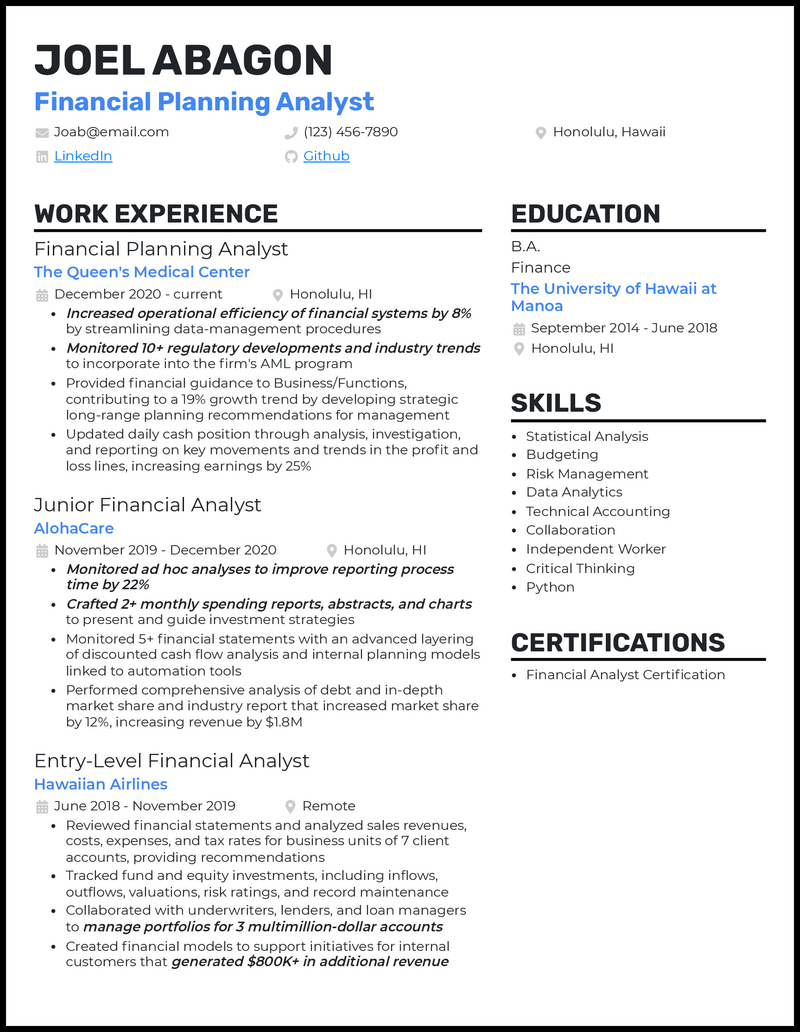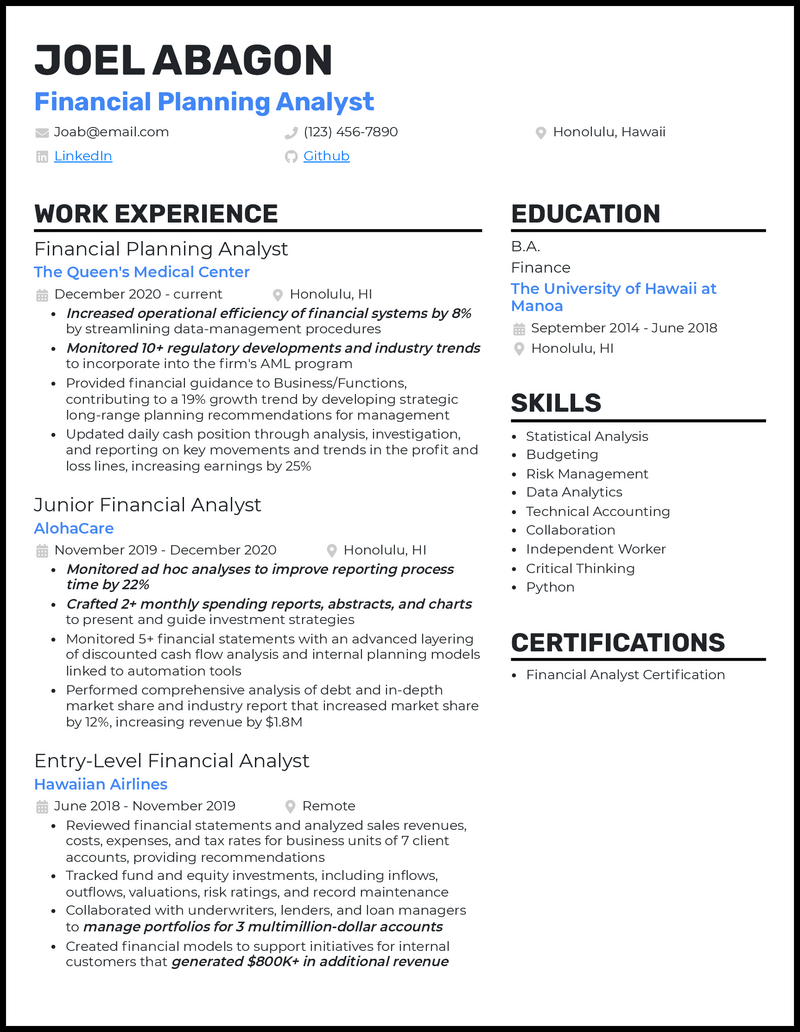You handle financial planning and forecasting to ensure optimal management of the company budget. Financial and variance models may also be on your to-do list, alongside escalating any issues to upper management.
But you might feel less sure about making a resume: How do you show off your financial prowess and analytical agility—and how should it all look?
Get ready to set yourself up for success with these five financial planning analyst resume templates and seasoned advice for making a cover letter!
What Matters Most: Your Skills & Experience Sections

While any job role involves some level of collaboration, you’re mainly focused on the data! Recruiters want to see your hard skills and profession-specific technical abilities, from Python to risk management.
Show you know how to conduct statistical analysis and budget management. Demonstrate that you can gather data and translate it into industry reports and actionable financial improvement plans.
Make sure you’re specific, too: Don’t undersell yourself with a skill like “planning” when you could say “spending reports” and “investment strategies.”
9 most popular financial planning analyst skills
- Budget analysis
- Risk Management
- Python
- Data Analytics
- Technical Accounting
- Problem-solving
- Industry Reporting
- Financial Forecasting
- Planning Models
Sample financial planning analyst work experience bullet points
After laying your skills out on the table, provide examples of when you used them to produce results. Talk about how you leveraged your financial forecasting or industry reporting expertise to circumvent a major budget hit.
Make sure anything you include in your experience section clearly relates to your profession and exemplifies the success you’ve created within your role. Don’t be vague or leave recruiters questioning what your bullet point has to do with financial planning analysis.
Always use metrics to quantify your impact, too. Use numerical data to back up your claims to fame within your field! Cite budget savings in dollar amounts, percentages, and rates.
Here are a few examples:
- Performed comprehensive analysis of debt and in-depth market share and industry report that increased market share by 12%, increasing revenue by $1.8M
- Monitored ad hoc analyses to improve reporting process time by 23%
- Provided financial guidance to Business/Functions, contributing to a 19% growth trend by developing strategic long-range planning recommendations for management
- Increased operational efficiency of financial systems by 8% by streamlining data management procedures using Python
Top 5 Tips for Your Financial Planning Analyst Resume
- Vary your context
- Harness examples with varied backstories to show the same adaptability you display within a company’s financial division. Mention why you did what you did—was it to overcome a barrier to company savings? Was it about maintaining profitable vendor relationships?
- Don’t neglect the numbers
- Be as precise as possible with the impact you measure in your experience section. Specificity shows expertise, so try to clarify where you made improvements in the company budget and which financial data management systems you streamlined.
- Keep it simple and modern
- You stay on top of the most cutting-edge market trends, and you want your resume template to look and feel just as current. Avoid any distracting colors or strange fonts that detract from readability and professionalism.
- Always include certifications
- Make sure you include your qualifying certifications alongside your other selling points! List your Certified Management Accountant (CMA), Certified Investment Management Analyst (CIMA), or any other credentials you have.
- Call up your references
- If you worked with a manager or advisor on an especially noteworthy initiative with highly profitable turnouts, see if they’ll write you a professional letter of recommendation to supplement your resume. It’s always impressive if someone can vouch for the time you boosted revenue with your detailed market share and revenue reporting!
If you have a ton of experience and information about your background, but a lot of it results in repetitive metrics (even if those metrics are good), you may want to consolidate and offer fresh qualifying information through a resume summary.
By tailoring your resume to each financial analyst job ad! Look over the job listing for company values and core objectives, and respond accordingly. Whether a business requires a focus on trend forecasting or pre-existing budget analysis, reflect corresponding experience points.
Good resumes present soft skills through a technical lens—and even imply them with hard skills. For example, “data presentation” shows how you communicate informational points well, and “budget analysis” implies you can translate complex data for different audiences.










